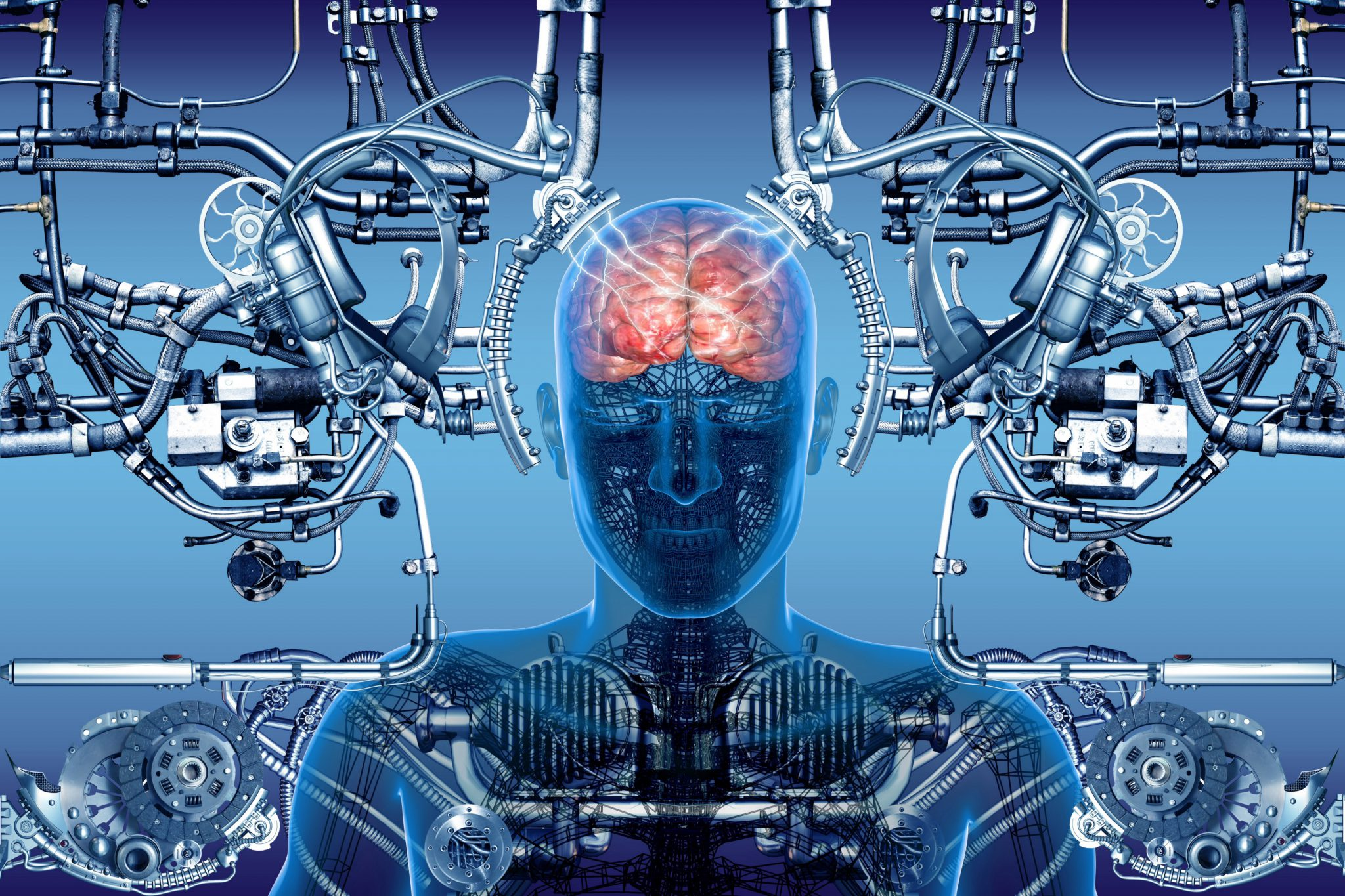Brain-computer interfaces (BCIs) represent a groundbreaking frontier in neurotechnology, offering a direct link between the brain and external devices. This innovation is exemplified by Neuralink technology, founded by Elon Musk, which aims to enable individuals to control computers and prosthetic limbs using only their thoughts. With BCI applications rapidly emerging, the potential for life-changing advancements in medical science is enormous, particularly for those with severe disabilities. Brain chip implants are paving the way for unprecedented interactions between human cognition and machines, making previously unimaginable feats, such as mind control, a reality. However, this progress invites critical discussions on ethical implications and the risk of misuse in the future.
The integration of neural interfaces, often referred to as BCI systems, encapsulates a revolutionary change in how humans can interact with technology. These neural interface devices facilitate a seamless communication pathway between mental commands and mechanical functions, broadening our understanding of cognitive capabilities. As innovative neurotechnology grows, it showcases immense potential for enhancing lives, particularly through applications like emotional and physical rehabilitation. Nevertheless, the advent of such technology sparks important debates surrounding its ethical use, particularly in terms of autonomy and mental freedom. Thus, as we explore this remarkable field, it is crucial to balance advancement with responsible governance.
The Promise of Brain-Computer Interfaces in Modern Medicine
Brain-computer interfaces (BCIs) represent a groundbreaking advancement in medical technology, offering transformative potential for individuals with disabilities. The emergence of Neuralink, founded by Elon Musk, highlights the possibilities of BCI applications that could revolutionize the way we interact with technology. By translating neural activity directly into actionable commands, BCIs can enable users, such as those suffering from paralysis, to control devices through their thoughts. This innovation not only enhances quality of life but also paves the way for new therapeutic treatments for a myriad of conditions, transforming how rehabilitation is approached.
Additionally, the potential applications of BCIs extend beyond mere control of devices; researchers are exploring ways to harness these interfaces to restore lost functions. For instance, BCIs could facilitate communication for individuals who have lost their ability to speak, allowing them to convey their thoughts through synthesized speech. With the market expanding rapidly, projected revenues for BCI technology could reach upwards of $400 billion, driving research and development to further unlock the therapeutic possibilities of brain chip implants.
The Dark Underbelly of Mind Control Technologies
While the advancements in brain-computer interfaces are exciting, there are inherent risks associated with their development that echo a chilling chapter in American history. The Carr Center for Human Rights has raised concerns about the misuse of technology for psychological manipulation, particularly reflecting on historical abuses such as the CIA’s MKUltra project. Lukas Meier, a fellow at the center, draws parallels between past experiments aimed at mind control and the potential for contemporary BCIs to be manipulated for unethical purposes.
As the technology evolves, the line between therapeutic and manipulative applications can become blurred. Meier warns that if BCIs enable the extraction of thoughts or influence behavior without consent, it could lead to significant ethical dilemmas regarding mental privacy and self-determination. This potential for misuse raises the question of regulation and oversight, necessitating a societal framework that ensures the responsible development and deployment of neurotechnology.
Ethical Considerations in Neuralink’s Development
The development of Neuralink and its brain chip implants raises vital ethical questions about consent and control over one’s own mind. As the technology becomes more sophisticated, the possibility of coercion or exploitation—particularly of vulnerable populations—looms large. The historical context of mind control experiments highlights the dangers of technological advancements that lack ethical safeguards. Ensuring that individuals are fully informed and consenting participants in any BCI application is paramount to safeguarding their autonomy.
Moreover, the implications of BCI technology extend beyond individual users to larger societal impacts. With increasing capabilities to access and interpret brain data, concerns around privacy are magnified. What happens if such technology falls into the wrong hands? The moral responsibility of developers, particularly in settings where governmental or corporate interests may prioritize profit over ethical considerations, is a challenging dilemma. Advocates argue for robust regulatory frameworks to protect individual rights and ensure the responsible advancement of neural technology.
The Future of Neurotechnologies: Balancing Innovation and Caution
As we look to the future of neurotechnologies, particularly brain-computer interfaces, a careful balance between innovation and caution must be maintained. The capabilities of these technologies indicate a transformative potential for healthcare applications, such as restoring mobility and enhancing communication. However, the specter of past abuses in psychological experimentation calls for a vigilant approach to technological integration into society. The debates surrounding ethics in innovation reflect a crucial need for collaborative dialogue among technologists, ethicists, and policymakers.
Experts stress the importance of developing clear guidelines and best practices for the safe usage of BCIs. This includes considerations of user consent, data security, and potential psychological implications of brain-modulating devices. As the technology matures, there is an opportunity to create standards that protect users from misuse while promoting the benefits of neural enhancement. Emphasizing ethical development will not only foster public trust but also ensure that advancements serve to empower rather than control individuals.
Exploring BCI Applications Beyond Medical Uses
Beyond their critical medical applications, brain-computer interfaces (BCIs) also promise practical benefits in various fields. For instance, in the gaming industry, BCIs could provide players with novel ways to interact with virtual environments, creating fully immersive experiences that respond to users’ cognitive states. Additionally, in the workplace, BCIs can enhance productivity by allowing workers to manage devices and software through thought alone, reducing reliance on traditional input methods.
Moreover, researchers are investigating the use of BCIs for educational purposes, enabling students with cognitive disabilities to engage more effectively in learning environments. The ability to decode and understand cognitive states could inform personalized educational strategies, targeting specific learning needs. As we consider the expansive potential of BCIs, it’s crucial to address the ethical implications of extending such technologies beyond medical contexts and into everyday applications.
Challenges in Regulation of Brain-Computer Interfaces
The rapid advancement of brain-computer interfaces (BCIs) presents significant challenges in terms of regulation and oversight. With technologies evolving at an unprecedented pace, existing regulatory frameworks may struggle to keep up with the implications of BCI applications. Policymakers are faced with the daunting task of creating guidelines that protect public interest without stifling innovation. Effective regulation is paramount, especially as the market for BCIs expands, potentially drawing in large-scale corporate interests that could prioritize profit over ethical considerations.
Moreover, international variations in regulatory standards for BCIs add complexity to the landscape. As different countries adopt their own approaches, there is a risk of creating loopholes or disparities that could be exploited. International collaboration among regulators, technologists, and ethicists is essential to develop comprehensive standards that address safety, ethical implications, and user rights. This global dialogue will be pivotal in ensuring that the development of BCIs proceeds responsibly and equitably.
Neuroethics: Navigating the Future of BCI Development
The field of neuroethics plays a critical role in navigating the complex implications of brain-computer interface (BCI) technologies. As the line between human cognition and technological enhancement blurs, ethical considerations surrounding autonomy, privacy, and mental integrity come to the forefront. The advent of neural enhancements necessitates discussions about what it means to be human and how our identities may evolve as we integrate technology into our cognitive processes.
Incorporating ethical frameworks into the development of BCIs can guide innovators to consider the societal impact of their work thoughtfully. Engaging diverse stakeholders—from neuroscientists to ethicists and the wider community—can foster a holistic understanding of the potential risks and benefits of these technologies. This inclusive dialogue is essential for shaping guidelines that not only promote innovation but also safeguard the values and rights of individuals in an era defined by advanced neurotechnology.
The Societal Implications of Neuralink and Mind Control
The societal implications of Neuralink’s advancements in mind control technologies are profound and multifaceted. While the potential for enhancing human capabilities is exciting, it also raises important questions about the societal norms surrounding personal agency and mental autonomy. The prospect of a future where thoughts can be read or modified by external devices challenges our foundational beliefs about privacy and selfhood. As such technologies develop, society must grapple with how to protect individual rights in the face of encroaching technological capabilities.
Moreover, there are broader implications for social equity, as access to advanced neurotechnologies may become a privilege reserved for a select few. This could further entrench disparities in healthcare and technology access, raising concerns about the ethical distribution of resources. Policymakers and community leaders must advocate for equitable access to BCIs while fostering open conversations about the socio-cultural impacts of mind control technologies. This engagement is crucial for ensuring that advancements benefit all segments of society rather than exacerbating existing inequalities.
Education and Awareness about BCIs: A Crucial Step Forward
As brain-computer interfaces (BCIs) become more prevalent, the importance of education and awareness cannot be overstated. Public understanding of how BCIs work, their potential benefits, and associated risks is essential to foster a society that can engage thoughtfully with these technologies. Educational initiatives can help demystify neurotechnology, addressing common misconceptions and fears, thereby empowering individuals to make informed decisions about their use and participation in BCI-related applications.
Furthermore, raising awareness around the ethical considerations of BCIs is fundamental to developing a responsible framework for their integration into society. By facilitating discussions about consent, privacy, and the potential for misuse, communities can advocate for ethical standards that protect individuals while promoting innovation. Educational programs that include diverse perspectives on BCI technology can create a more informed citizenry capable of engaging with the implications of neurotechnology responsibly.
Frequently Asked Questions
What are brain-computer interfaces (BCIs) and how do they work?
Brain-computer interfaces (BCIs) are advanced neurotechnology systems that enable direct communication between the brain and external devices. They work by decoding brain signals, allowing individuals to control computers, prosthetics, or other devices with their thoughts. Neuralink technology, for example, utilizes a brain chip implant to facilitate this interaction and shows great promise in assisting people with disabilities.
What is Neuralink technology and its significance in brain-computer interfaces?
Neuralink technology, founded by Elon Musk, focuses on developing brain-computer interfaces that integrate human neural activity with computers. The significance of this technology lies in its potential to enhance human capabilities, offering solutions for paralysis and enabling communication through thought alone. The recent success of brain chip implants exemplifies the groundbreaking advancements in BCI applications.
How can brain-computer interfaces help individuals with disabilities?
Brain-computer interfaces (BCIs) can greatly assist individuals with disabilities by providing new ways to interact with technology. For instance, BCIs enable people with paralysis to control computer cursors, operate prosthetic limbs, or even translate thoughts into speech, significantly improving their quality of life and autonomy.
What are the ethical concerns surrounding brain-computer interfaces?
Ethical concerns surrounding brain-computer interfaces, particularly those like Neuralink technology, revolve around issues of consent, mental privacy, and the potential for misuse. The fear of psychological manipulation or mind control echoes historical abuses like the CIA’s MKUltra program. As BCI technology advances, ensuring responsible use and safeguarding individuals’ rights is crucial.
What future applications do researchers envision for brain-computer interfaces?
Researchers foresee a range of future applications for brain-computer interfaces, including the potential to reconstruct visual images from brain signals and possibly influence behavior through neuromodulation. As BCI applications expand, they may offer groundbreaking therapeutic interventions for mental health and neurological disorders, alongside innovative control methods for various devices.
How does deep brain stimulation relate to brain-computer interfaces?
Deep brain stimulation (DBS) is a technique often explored within the context of brain-computer interfaces. While DBS is primarily used to treat conditions like Parkinson’s disease, it also exemplifies how BCI technology can inadvertently affect behavior, revealing the complexities and ethical dimensions of manipulating brain functions through advanced neurotechnology.
What role might government regulation play in the development of brain-computer interfaces?
Government regulation could play a critical role in the development of brain-computer interfaces by ensuring ethical standards, protecting mental privacy, and establishing guidelines for research and application. As concerns regarding misuse, such as mind control and coercive behavior, arise, regulatory frameworks will be essential to safeguard individual rights while promoting innovation.
How is Elon Musk’s neurotechnology pushing the boundaries of brain-computer interface capabilities?
Elon Musk’s neurotechnology initiatives, particularly through Neuralink, are pushing the boundaries of brain-computer interface capabilities by focusing on developing sophisticated brain chip implants. These advancements aim to enable seamless interaction between the human brain and computers, opening new frontiers in treating neurological disorders and enhancing cognitive functions.
What are the market prospects for brain-computer interfaces in the near future?
The market prospects for brain-computer interfaces are promising, with estimates indicating a potential valuation of around $400 billion in the U.S. alone due to rising demand for therapies assisting with spinal cord injuries, strokes, and other conditions. As the technology matures, BCI applications are likely to expand, attracting significant investment and interest.
Can brain-computer interfaces be used for mind control?
While brain-computer interfaces are primarily designed for therapeutic applications, they raise ethical questions about the potential for mind control. The advanced capabilities of BCIs may inadvertently lead to situations where thoughts and behaviors could be influenced, echoing concerns from historical instances of psychological manipulation. Responsible development and strict ethical oversight are crucial in this regard.
| Key Point | Description |
|---|---|
| Brain-Computer Interfaces (BCIs) | Technologies designed to help individuals with disabilities control devices using their thoughts. |
| Noland Arbaugh’s Case | The first recipient of a Neuralink brain chip, demonstrating promise in controlling a mouse and playing chess. |
| Potential Market | The BCI market could reach around $400 billion in the U.S. due to the high incidence of related disabilities. |
| Ethical Concerns | A report warns of historical parallels to past mind control experiments, raising concerns over self-determination and consent. |
| Historical Context | References the CIA’s MKUltra program and previous attempts at psychological manipulation. |
| Unintended Consequences | Some BCI applications may lead to unpredictable changes in behavior or personality. |
| Development Support | Despite ethical concerns, calls for the advancement of BCI technology to remain competitive globally. |
Summary
Brain-computer interfaces (BCIs) represent a groundbreaking advancement in neurotechnology, offering tremendous potential to assist those with disabilities. However, potential ethical dilemmas and historical lessons from past mind control efforts raise significant concerns about their future development. The promise of BCIs, as exemplified by Noland Arbaugh’s ability to control devices with a brain implant, must be paired with rigorous scrutiny to ensure self-determination and consent in their application. As we navigate this innovative landscape, it’s crucial to balance technological progress with an awareness of the risks associated with psychological manipulation and mental privacy.



